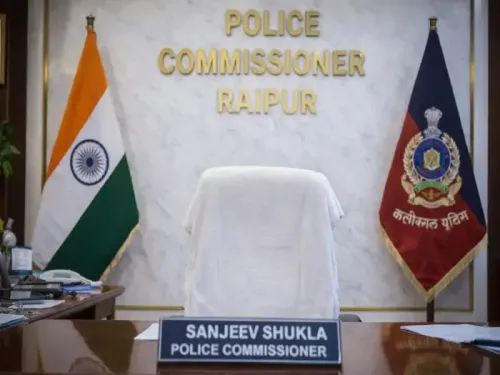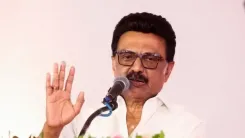Why Do Trump's Conflict Resolution Efforts Struggle in Ukraine?

Synopsis
Key Takeaways
- Trump's involvement in Gaza has seen some progress.
- Ukraine's conflict presents significant geopolitical challenges.
- Putin's demands complicate peace negotiations.
- NATO's expansion is a critical factor in the Ukraine situation.
- Trump's diplomatic style often lacks institutional support.
New Delhi, Oct 10 (NationPress) United States President Donald Trump has become a pivotal player in facilitating a ceasefire between Israel and Hamas, representing the first significant advancement toward peace in Gaza after three years of relentless bombings.
Regardless of whether his peace initiatives earn him a Nobel Prize, they have sparked a global discussion about his attempts at conflict resolution, with world leaders acknowledging Trump's proactive stance. However, in Ukraine, the path to peace appears challenging and resistant to quick fixes. The situation hinges on leverage, consistency, and coalition-building rather than mere bold statements when dealing with Russian President Vladimir Putin.
Putin asserts that Ukraine is governed by "neo-Nazis" who threaten the Russian-speaking population. He contends that the people in eastern Ukraine (Donbas) require protection from alleged "genocide" by Kyiv. Ukraine has consistently rejected these assertions.
The President of Russia has also stated that Ukraine is an "artificial state" created by Russia, implying that Ukrainians and Russians are essentially "one people". His primary concern has been Ukraine's inclination to join NATO, which the current Ukrainian President, Volodymyr Zelensky, indeed favored during the 2023 Summit.
However, a NATO statement at that time indicated that "Ukraine's future is in NATO", but did not specify when a formal invitation would be offered.
For Russia, further NATO expansion eastward would pose a "direct threat" at its borders, according to Putin.
Gaining control over Ukraine would secure for the Russian President access to the Black Sea and a wealth of natural resources, along with a buffer zone against NATO.
Putin cannot simply be deterred without significant concessions or military escalation. Interestingly, some analysts suggest that Trump's skepticism towards NATO may have emboldened the Russian President, who possibly viewed Western disunity as an opportunity.
Despite Trump's ongoing peace negotiations since regaining office, Putin has refrained from meeting with Zelensky and demands acknowledgment of Russian territorial claims—conditions Ukraine firmly refuses. Zelensky remains dedicated to reclaiming all occupied territories, Crimea included.
On the other hand, Putin shows little interest in genuine negotiations, especially as Russian forces report strategic advancements.
As for Gaza, ceasefire negotiations are currently in progress, with optimism for a resolution as discussions between Hamas and Israel move forward in Egypt. These talks are part of a larger initiative to establish a ceasefire and address the humanitarian crisis in Gaza, which has escalated due to Israel's response to the Hamas attacks on October 7, 2023.
The ongoing conflict has led to significant casualties and displacements among the Palestinian population, with tens of thousands reported dead and many more injured.
Trump has occasionally aligned with, and at times diverged from, Israel's Prime Minister Benjamin Netanyahu, based on his own interests.
While he vocally opposed nations recognizing the state of Palestine at the recent UN General Assembly session and previously supported Israel in strikes against Iran, his response to Netanyahu's actions in Doha was notably different.
His actions seemingly created sufficient pressure on Israel's Prime Minister, in conjunction with coordination with Arab leaders and a personal letter to Egyptian President El-Sisi, which reportedly nudged negotiations toward a conclusion. Since returning to office, Trump has also claimed credit for resolving up to seven conflicts, including disputes between Armenia and Azerbaijan, Rwanda and the Democratic Republic of Congo, and Thailand and Cambodia.
While some of these efforts have brought temporary peace, others remain delicate or contentious. Analysts warn that Trump's transactional approach—utilizing tariffs, threats, and personal diplomacy—frequently lacks institutional continuity. Putin, an adept strategist, sees through these rhetorical postures and inconsistent shifts in Trump's position. Despite numerous summits with both Zelensky and Putin, Trump's attempts to resolve the Ukraine conflict thus far have been unsuccessful.









